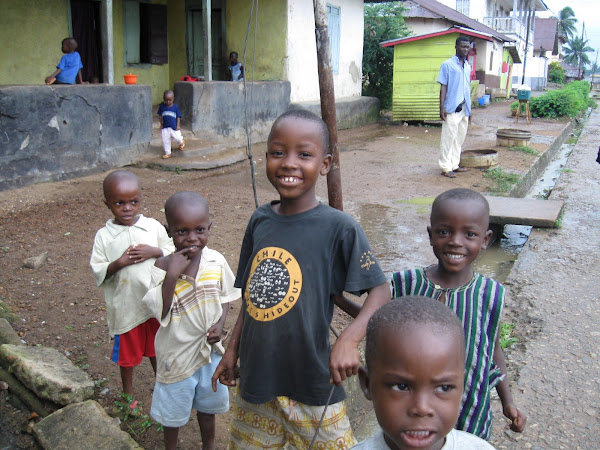It’s our last real work day – if we don’t count tomorrow. And we don’t really count tomorrow, as our primary task is to throw a party for the 150 CSP (Child Support Program) children and the 25 Foster Care children supported by African Programs as part of the CRC/Mercy project. The focus of the party is to encourage the children to read. They’ll each receive one of the canvas tote bags Kate got for them with our CRC Reads! Campaign dragon on them, and a Scholastic book to keep for themselves. That will take place tomorrow afternoon with 174 children!
We’ll have our traditional farewell party with the resident children tomorrow evening, with treats and t-shirt signing. And then early on Sunday, we’ll begin the long journey home.
It’s been a very full week. We haven’t completed our task list, but we accomplished a great deal of it, and feel good about what we have been able to do. I think we gathered some useful data about how teaching and school work here, and we’ll be able to draw some conclusions about what we could do differently to be more supportive and responsive to our students' needs in the summer school programs. We have a better idea of their reading levels as well.
School visits might have been the highlight of the week for me. Though some of it I had expected, some of it surprised me, both pleasantly and not. The students learn in classrooms with virtually no resources. No teacher at any level or in any class I observed had much more than a spiral notebook they had turned into a grade book, three or four pieces of chalk and a battered blackboard. The classrooms have no electric lights, no posters or educational materials on the walls, no books in shelves lining. They sometimes sit two and three to the same desk because of overcrowding. JSS and SS students don’t bring textbooks to school (though they have them at home for some subjects) because they have eight classes a day and no lockers at school. They write everything they learn from their teacher into their copy books (composition notebooks); one per class, and most information is memorized and recited back from rote memory. The teachers are by and large tough and funny, and they don’t put up with any hint of misbehavior.
Students seem remarkably polite, well-mannered and attentive in class. Even the very youngest students remain relatively still and quiet while teacher is talking. Of course, one reason for that is that corporal punishment is widely used here, and culturally acceptable. I saw one third grade teacher twist the ear of a student who was writing when she was not supposed to be. One of our own CRC children was flogged (four “cuts” with a cane on the seat of her pants, though the last fell on her arm as she tried to block it) for being disrespectful to a teacher. Punishment is physically and verbally harsh here. Teachers not only hit students, they say things to them that would get an American teacher fired. And yet, they seem to genuinely care about their students, and they work very hard at their jobs with absolutely no resources at their disposal. The people here believe that this type of punishment is necessary to toughen a child. Some reflect that they prefer their children to go to the government schools so that they will be beaten more often and learn how to behave. I’m glad ours go to private schools if that is the case. It is hard to see them hurt. I wonder what these teachers would think if they had the chance to observe in our schools.






No comments:
Post a Comment